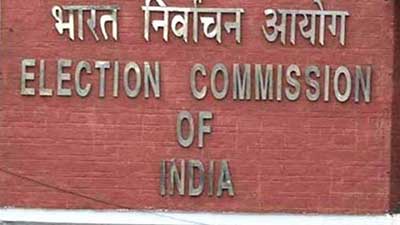Date: 25/11/2022
Relevance: GS-2: Structure, Organization and Functioning of the Judiciary; Appointment, Powers, Functions and Responsibilities of various Constitutional Bodies; Election Commission of India.
Key Phrases: Election Commission of India, Supreme Court of India, Neutrality, Independence, Selection Committee, Article 324 of the Constitution of India, Separation of Power, CBI Director, Democracy, Electoral Rolls.
Context:
- Recently, the Supreme Court observed that a committee which includes the Chief Justice of India might ensure the most transparent way of selecting election commissioners while hearing a batch of petitions to reform the appointment of members to the Election Commission of India.
Key Highlights:
- Recently, Arun Goel assumed charge as the new Election Commissioner (EC) of India.
Merits of the Recommendation of the Supreme Court:
- Ensure Neutral Appointments:
- Demands for bipartisan appointments to the Election Commission have been around for decades, but governments have seldom agreed.
- In the present case, the court might provide a way for neutral appointments to the Election Commission.
- Role of CJI in Appointment is Not New
- CJI plays an important role in the selection of CVC, CBI Director and Lokpal body so this is not new for CJI to take part in the appointment process of the constitutional and statutory bodies.
Demerits of the Recommendation of the Supreme Court:
- Risks violating the Separation of Powers
- Institutionally, the desire within the judiciary to get more entangled in appointments is possibly more about leverage than virtue.
- It may result in conflicts between the executive and judiciary arms of the government. So it can violate the separation of power.
- Not Ensure Better Performance
- Formal appointment processes are no predictors of performance or bulwarks against the underlying distribution of political power.
- No Need for SC’s Intervention
- Elections were held on time and no abuse of power has
happened in the Election Commission.
- So there is no need for judicial intervention.
- Elections were held on time and no abuse of power has
happened in the Election Commission.
Election Commission of India
- About
- The Election Commission of India (ECI) is an autonomous and permanent constitutional body.
- It is responsible for organizing free and fair elections in the Union and States of India.
- The Constitution grants the ECI with the power of direction, superintendence, and control of elections to Parliament, state legislatures, the office of president of India and the office of vice-president of India.
- Powers and Responsibilities
- Determining the Electoral Constituencies’ territorial areas throughout the country.
- Preparing and periodically revising electoral rolls and registering all eligible voters.
- Notifying the schedules and dates of elections and scrutinizing nomination papers.
- Granting recognition to the various political parties and allocating them election symbols.
- The Commission also has advisory jurisdiction in the matter of post-election disqualification of sitting members of the Parliament and State Legislatures.
- Composition
- A chief election commissioner (CEC) and Other election commissioners (EC) (the number is to be decided by the President from time to time Art 324).
- Tenure- Six years or up to the age of 65 years whichever is earlier.
- Appointment of Election Commissioners
- Article 324 (2) specifies that the Chief Election Commissioner and Election Commissioners will be appointed by the President of India.
- This is subject to Parliamentary law (if such law exists).
- In the absence of such a law, the President has been making appointments as per the recommendations of the Prime Minister.
- CEC and EC
- Though the Chief Election Commissioner is the chairman of the election commission, his powers are equal to the other election commissioners.
- All the matters in the commission are decided by the majority of its members.
- The Chief Election Commissioner and the two other election commissioners receive equal salaries, allowances and other benefits.
- They enjoy the same status and receive salary and perks as available to Judges of the Supreme Court of India.
- Removal
- The CEC can be removed from office only through a process of removal similar to that of a Supreme Court Judge by Parliament.
- The President of India can remove the other officers on the Chief Commissioner's recommendation.
Un-addressed Issues of EC:
- Number of Commissioners is Not Specified
- In principle, a government can enlarge the Commission sometimes with a view to undermine the authority of existing commissioners.
- No Security of Tenure and Constitutional status to ECs
- The other commissioners do not enjoy the security of tenure and constitutional status of the CEC. This can affect their independence.
- CEC’s powers in relation to other commissioners
- There is no mention of the CEC’s powers in relation to other commissioners.
Way Forward:
- The Supreme Court should address specific concerns by avoiding unnecessary interventions.
- It should not use ad hoc observations to undermine the legitimacy of the EC as a whole as if one constitutional body commenting on another was drawing room talk.
- The Court and the public should not be misled by erroneous and purely lawyerly framings of the issue.
Conclusion:
- The ECI’s powers of self-regulation and its tendency to consolidate and enhance its powers have contributed to making the ECI a relatively autonomous institution, with a distinctive identity deriving from the democratic logic of the state.
Source: Indian Express
Mains Question:
Q. What can be the merits and demerits of the involvement of the judiciary in the appointment of the election commissioners? Critically Evaluate. (250 Words).







